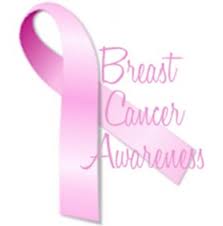Source: Chicago’s Northwestern University News Center; www.northwestern.edu
 In what has been termed the “first study in which women are actually asked questions,” a staggering 36% of postmenopausal women who are treated for estrogen-sensitive breast cancer quit using drugs that help prevent the disease from recurring. Universally the reason is because of side effects of the medication, which are more severe and widespread than previously known. Researchers noted that women do not tell their doctors about all of the side effects they experience or their degree.
In what has been termed the “first study in which women are actually asked questions,” a staggering 36% of postmenopausal women who are treated for estrogen-sensitive breast cancer quit using drugs that help prevent the disease from recurring. Universally the reason is because of side effects of the medication, which are more severe and widespread than previously known. Researchers noted that women do not tell their doctors about all of the side effects they experience or their degree.
“Clinicians consistently underestimate the side effects associated with treatment,” said lead investigator Lynne Wagner, Associate Professor at Northwestern University Feinberg School of Medicine and a clinical psychologist at Robert H. Lurie Comprehensive Cancer Center of Northwestern University. “They give patients a drug they hope will help them, so they have a motivation to underrate the negative effects. Patients don’t want to be complainers and don’t want their doctor to discontinue treatment. So no one knew how bad it really was for patients.”
Among reported side effects, the most common one causing cessation of treatment was joint pain. Other side effects women reported as compromising their quality of life were hot flashes, decreased libido, weight gain, feeling bloated, breast sensitivity, mood swings, irritability and nausea. 2/3 of all breast cancers are stimulated by estrogen and the drugs given to women halt the production of estrogen in the body. This causes symptoms commonly associated with menopause.
The women at highest risk for quitting the medications before the recommended five years are those who still are experiencing residual side effects from recent chemotherapy or radiation therapy when they start the aromatase therapy. “The more miserable they were before they started, the more likely they were to quit,” according to Wagner.
The Northwestern study surveyed 686 women with a detailed questionnaire about their symptoms before treatment and at 3, 6, 12 and 24 months after starting treatment. The researchers found after three months of treatment that 33-35% of women had severe joint pain, 28-29% percent had hot flashes, 24% had decreased libido, 15-24% experienced fatigue, 16-17% reported night sweats and 14-17 % felt anxiety. 36% of women ended treatment before an average of 4.1 years. After two years, 10% had quit; the remainder quit between 25 months and the 4.1 years. When one considers that the risk of recurrence of breast cancer in this group of women is high, it is concerning that they would voluntarily stop their medical therapy because of side effects. Perhaps more research into better drugs with less side effects is needed. The research was funded by the National Cancer Institute.
Posted by: Gayle R. Lewis, Esquire
